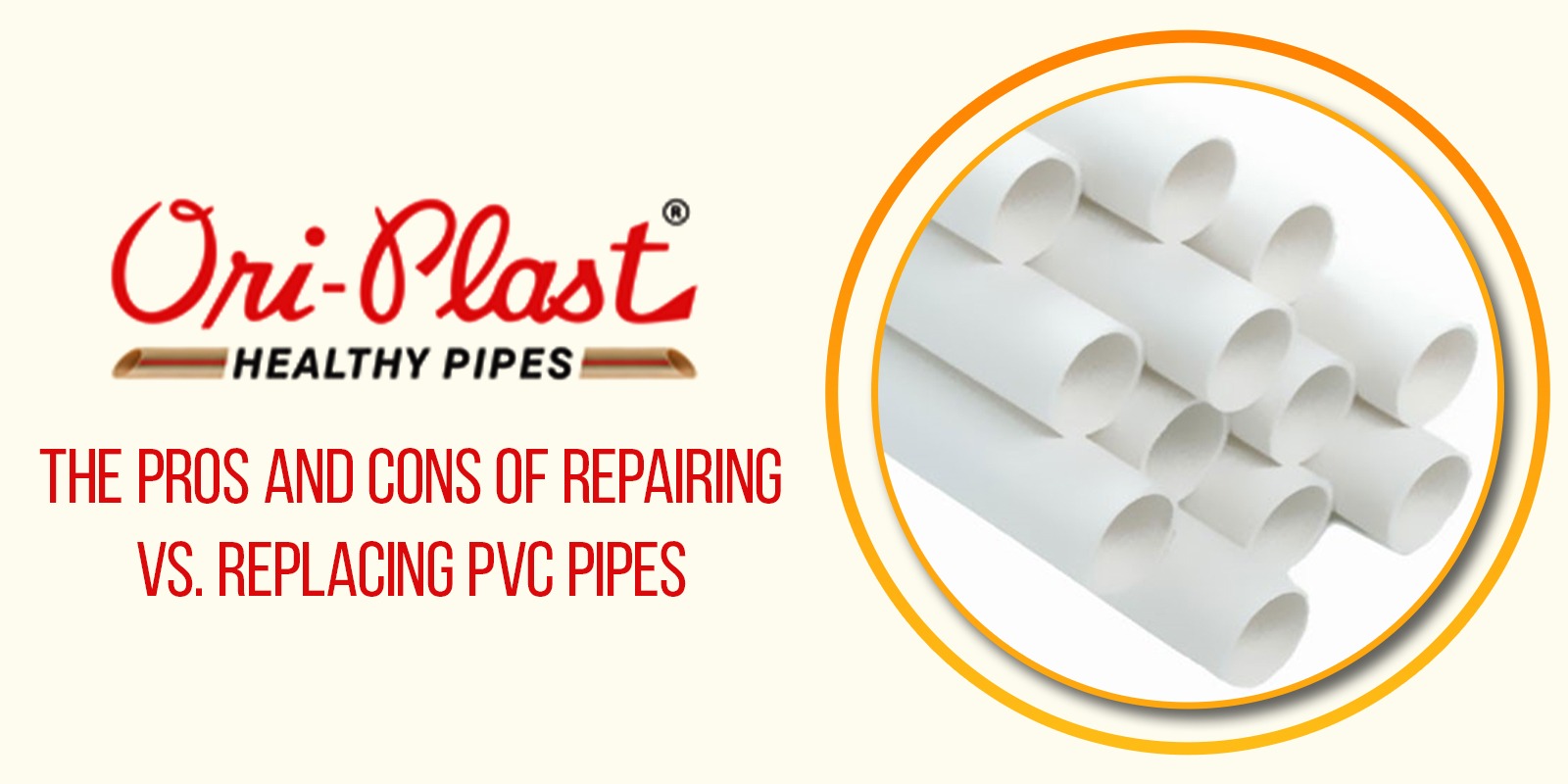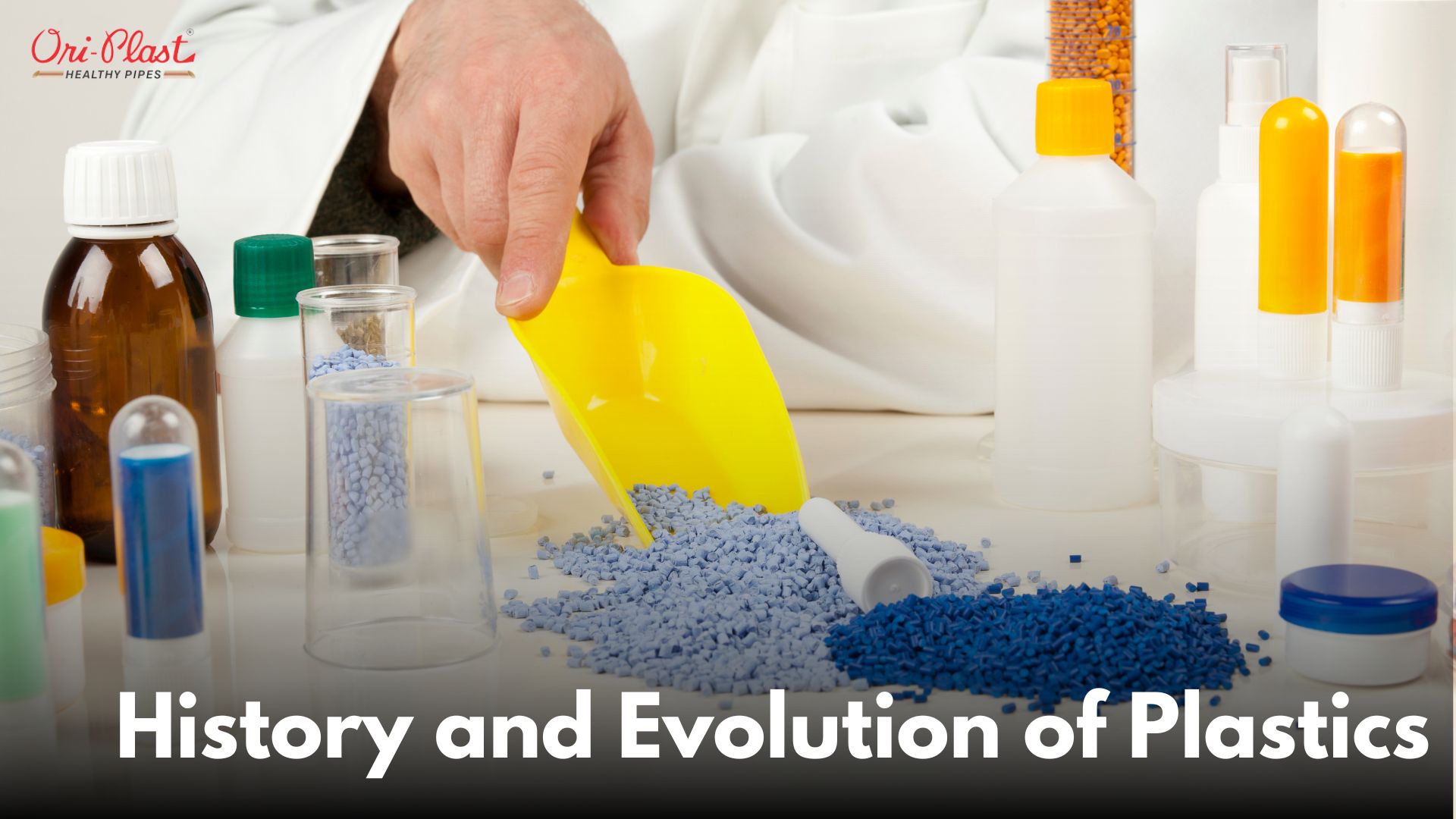Are you experiencing issues with your PVC pipes, such as leaks, cracks, or damage? If so, you may be wondering whether to repair or replace them. It's important to know which option to choose to ensure the longevity and efficiency of your plumbing system.
Repairing vs. Replacing PVC Pipes
In this article, we'll explore the pros and cons of repairing vs. replacing PVC pipes. We'll provide you with useful information to help you make an informed decision based on the specific situation. We understand that dealing with plumbing issues can be stressful, but don't worry, we're here to help!
Pros of PVC Pipes Repair
When it comes to PVC pipes, repairing them can be a cost-effective solution compared to replacing them. Here are some of the benefits of repairing PVC pipes:
- Saves money: Repairing PVC pipes can be more affordable than replacing them entirely. In many cases, a simple repair can fix the issue and prevent the need for costly replacements.
- Saves time: Repairing PVC pipes can often be completed faster than replacing them, which means less downtime for your plumbing system. This is especially important if you rely on your plumbing for your business or everyday activities.
- Environmentally friendly: Repairing PVC pipes is a more eco-friendly option than replacing them. By repairing instead of replacing, you're helping to reduce waste and conserve resources.
- Preserves original piping: Repairing PVC pipes allows you to keep the original piping intact, which can be important for maintaining the integrity of your plumbing system.
Examples of situations where repairing PVC pipes is the best option include small cracks, minor leaks, or damage in a localized area. If the damage is limited and hasn't affected the entire pipe or plumbing system, then repairing the PVC pipe is likely the most appropriate choice.
Overall, repairing PVC pipes can provide a cost-effective, quick, and eco-friendly solution to common plumbing issues. Keep in mind that the decision to repair or replace PVC pipes should always be based on the specific situation and the advice of a professional plumber. In the next section, we'll discuss the cons of repairing PVC pipes to give you a more balanced perspective.
Cons of Repairing PVC Pipes
While repairing PVC pipes can be a great solution in certain situations, there are some drawbacks to keep in mind. Here are some cons of repairing PVC pipes:
- Temporary fix: Repairs may only be a temporary solution. Depending on the extent of the damage, the repaired area may need to be addressed again in the future.
- Hidden damage: There may be hidden damage that cannot be seen or addressed during the repair process. This could lead to larger issues down the road, such as more leaks or breaks in the pipe.
- Limited lifespan: Repaired PVC pipes have a limited lifespan, and they may not last as long as a completely replaced pipe.
- Labor intensive: Repairs can be more labor-intensive than replacement, especially if the damage is extensive or in a difficult-to-reach location.
Examples of situations where repairing PVC pipes is not the best option include extensive damage, a large number of leaks or breaks, or pipes that are nearing the end of their lifespan. In these cases, replacing the PVC pipe may be the most appropriate choice to ensure the longevity and efficiency of your plumbing system.
It's important to keep in mind that the decision to repair or replace PVC pipes should always be made based on the specific situation and the advice of a professional plumber. In the next section, we'll discuss the pros and cons of replacing PVC pipes to provide you with a more well-rounded understanding.
Pros of Replacing PVC Pipes
Replacing PVC pipes can offer several benefits for your plumbing system. Here are some of the advantages of replacing PVC pipes:
- Longevity: Replacing PVC pipes can provide a long-term solution to plumbing issues. New pipes can last for decades, ensuring that you won't need to address the same issues again for a long time.
- Improved efficiency: Replacing PVC pipes can improve the overall efficiency of your plumbing system. New pipes can help to improve water pressure, reduce leaks, and improve drainage.
- Better performance: New pipes can also provide better performance, especially if you're upgrading to larger or more modern pipes. This can be important for businesses or homeowners who rely on their plumbing for daily activities.
- Increased home value: Replacing with the best quality PVC pipes can increase the value of your home or property, as it shows that you've taken steps to maintain and improve your plumbing system.
Examples of situations where replacing PVC pipes is the best option include extensive damage, multiple leaks or breaks, or pipes that are nearing the end of their lifespan. In these cases, replacing the PVC pipe can provide a long-term solution and ensure the efficiency and safety of your plumbing system.
It's important to note that replacing PVC pipes can be a larger investment upfront compared to repairing them, but it can ultimately save you money and prevent future issues. As with any plumbing decision, it's important to consult with a professional plumber to determine the best course of action for your specific situation.
Cons of Replacing PVC Pipes
While replacing PVC pipes can provide long-term solutions to plumbing issues, there are some potential drawbacks to keep in mind. Here are some of the cons of replacing PVC pipes:
- Higher cost: Replacing PVC pipes can be more expensive upfront compared to repairing them, especially if the replacement requires extensive labor or materials.
- Disruption to daily activities: Replacing PVC pipes can be a time-consuming process that can disrupt daily activities. Depending on the extent of the replacement, it may require shutting off water to the entire property for an extended period of time.
- Environmental impact: Replacing PVC pipes can have a negative environmental impact, as it requires the disposal of the old pipes and the use of new materials.
- Invasive process: Replacing PVC pipes can be an invasive process, as it may require cutting into walls, floors, or ceilings to access the pipes. This can be particularly challenging in older buildings or structures with unique architecture.
Examples of situations where replacing PVC pipes may not be the best option include minor damage or a small number of leaks or breaks. In these cases, repairing the pipes may be a more cost-effective and efficient solution.
It's important to consider both the pros and cons of repairing vs. replacing PVC pipes when making a decision for your plumbing system. Ultimately, the best choice will depend on the specific situation and the advice of a professional plumber. By weighing the benefits and drawbacks, you can make an informed decision that will provide long-term solutions and ensure the efficiency and safety of your plumbing system.
Conclusion
In conclusion, both repairing and replacing PVC pipes have their advantages and disadvantages. Repairing PVC pipes can be a cost-effective solution for minor damage or a small number of leaks or breaks. It can also be a quicker process with less disruption to daily activities. On the other hand, replacing PVC pipes can provide a long-term solution to plumbing issues, particularly in the case of extensive damage or multiple leaks or breaks. It can also improve the efficiency and safety of the plumbing system.
When deciding whether to repair or replace PVC pipes, it's important to consider the specific situation, including the extent of the damage, the age of the pipes, and the overall condition of the plumbing system. It's recommended to consult with a professional plumber to assess the situation and determine the best course of action.
In general, repairing PVC pipes is a good option for minor issues, while replacing PVC pipes may be necessary for more extensive damage or aging pipes. By considering the pros and cons of each option and seeking professional advice, homeowners and property owners can make informed decisions that will ensure the efficiency and safety of their plumbing system.
Overall, knowing the pros and cons of repairing vs. replacing PVC pipes is crucial for maintaining a functional plumbing system. Whether you choose to repair or replace, it's important to take action promptly to avoid further damage and ensure the longevity of your pipes and plumbing system.




